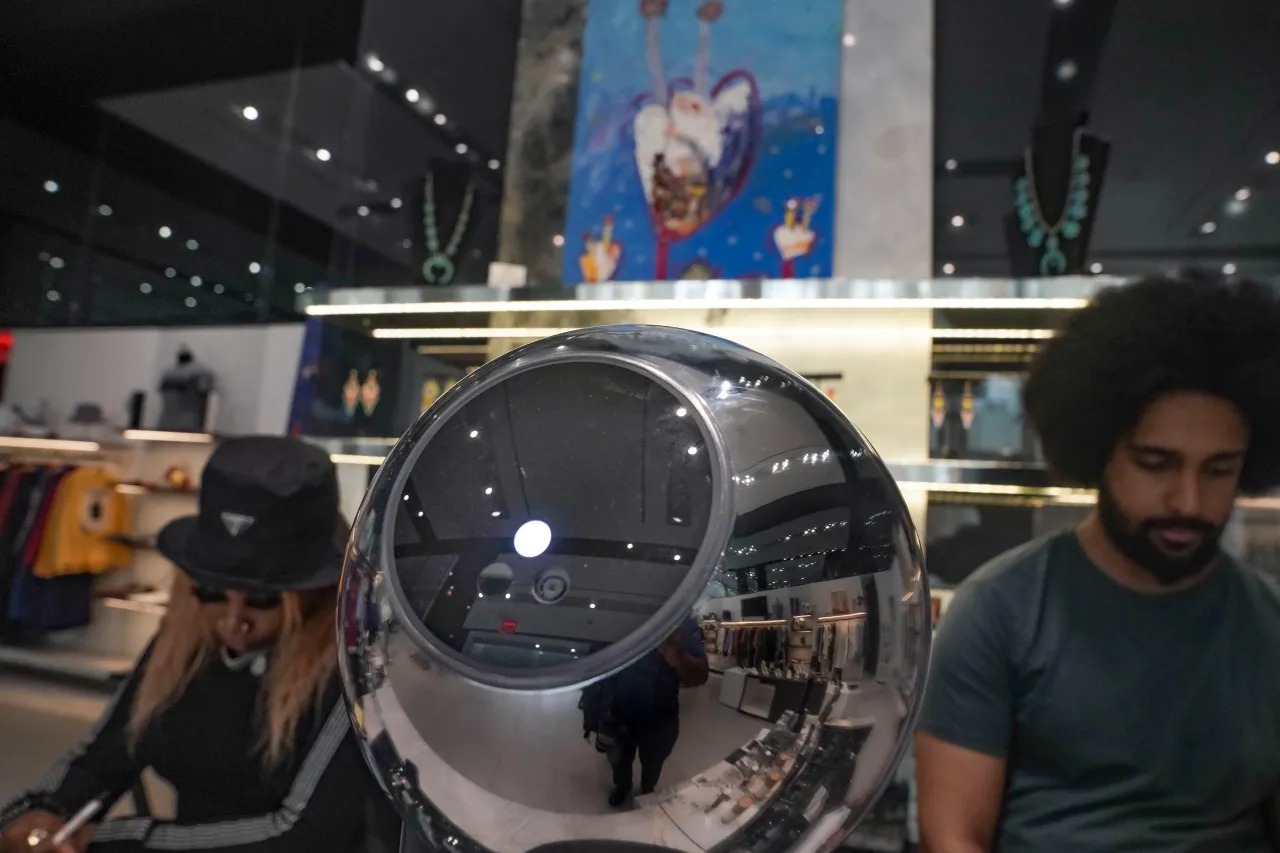
Imagine a future where your iris scan unlocks not just your phone, but your bank account, voting rights, and even your social media profile. This is the vision of Worldcoin, a project aiming to build a global identity network using its signature iris-scanning “orbs.” While it promises a utopian future of financial inclusion and streamlined access, dark undertones of mass surveillance and data misuse lurk beneath the surface.
Worldcoin’s pitch is simple: use your eyes to register on the blockchain, and voila! You’re instantly equipped with a secure, digital ID. No more lost passports or forgotten passwords, just the convenience of your unique iris pattern granting you access to a world of online and offline services.
But there’s a catch, and it’s a big one, staring right back at you from the orb’s reflective surface: privacy. Critics argue that handing over your biometric data, even in its “encrypted” form, is akin to handing over a key to your entire identity. Once it’s out there, who can guarantee it won’t fall into the wrong hands, be used for nefarious purposes, or even become a target for hackers?
The project claims the iris scans are converted into “codes” that are stored on the blockchain, but the very nature of blockchain technology makes it tamper-proof, not tamper-resistant. Once data is uploaded, it’s practically etched in stone, leaving users with little recourse if a data breach or misuse occurs.
Furthermore, Worldcoin’s partnership with subcontractors in developing countries raises concerns about informed consent. Reports suggest some individuals were pressured into signing up, often without understanding the implications of surrendering their biometric data. This casts a shadow over the entire project’s ethical standing.
Despite the anxieties, Worldcoin has its ardent supporters. They hail it as a revolutionary tool for empowering the unbanked, streamlining aid distribution, and combating identity theft. They envision a world where financial services and government programs are accessible to all, regardless of location or traditional identification documents.
The debate boils down to a fundamental question: convenience at what cost? Is a frictionless, globally connected future worth sacrificing the privacy of our most sensitive biometric data? Only time will tell if Worldcoin’s iris-scanning orbs illuminate the path to a brighter future, or plunge us into a dystopian nightmare of perpetual surveillance.
One thing is certain: this isn’t just a technological conundrum; it’s a human one. As we inch closer to a world where our eyes become our keys, wallets, and passports, we must tread carefully, with informed consent and a critical eye on the potential pitfalls. Only then can we ensure that the “utopia” promised by Worldcoin isn’t built on the foundation of our surrendered privacy.
